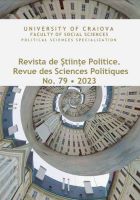Educational Impact of ACEs
Educational Impact of ACEs
Author(s): Costina Denisa BărbuceanuSubject(s): School education, Educational Psychology, Health and medicine and law, Sociology of Education, Pedagogy
Published by: Editura Universitaria Craiova
Keywords: ACEs (Adverse Childhood Experiences); negligence; brain development; buffer; hippocampus;
Summary/Abstract: Timely childhood and adolescence are critical phases in the brain growth of every child during which the skills and information acquired in the first years of life form the foundation for the rest of his adult life. If major incidences appear, may it be positive or negative, the subject might show an inclination towards a set of conducts, thus it is of uttermost importance for children to grow up in nonviolent, nontoxic, trauma free settings where they can feel safe, supported and cared for by the adults – the buffers, in their lives. Children exposed to adversity during this sensitive period are inclined to have modifications, delays, impairment of both emotional and cognitive brain processes that can be mirrored into adult life, especially in the ability to learn and control stress but also in anxiety, later addictions or psychiatric admissions. The hippocampus, essential for learning and memory, is located near the center of the brain and it is remarkably vulnerable to stress, additionally it is easily affected by ACEs. Stress exposure in early childhood decreases the volume of the hippocampus, by shrinking the cell formation and the hindering of the dendritic arbores and spines. Adults who had reported an ACE score of four or more might parade a behavior with increased risk for depression, alcohol use, addiction and suicide furthermore strengthening the connection between ACEs and the major causes of death in adults exhibiting heart disease, cancer, and lung disease with, apparently, no risk factors.
Journal: Revista de Științe Politice. Revue des Sciences Politiques
- Issue Year: 2023
- Issue No: 79
- Page Range: 150-159
- Page Count: 10
- Language: English

